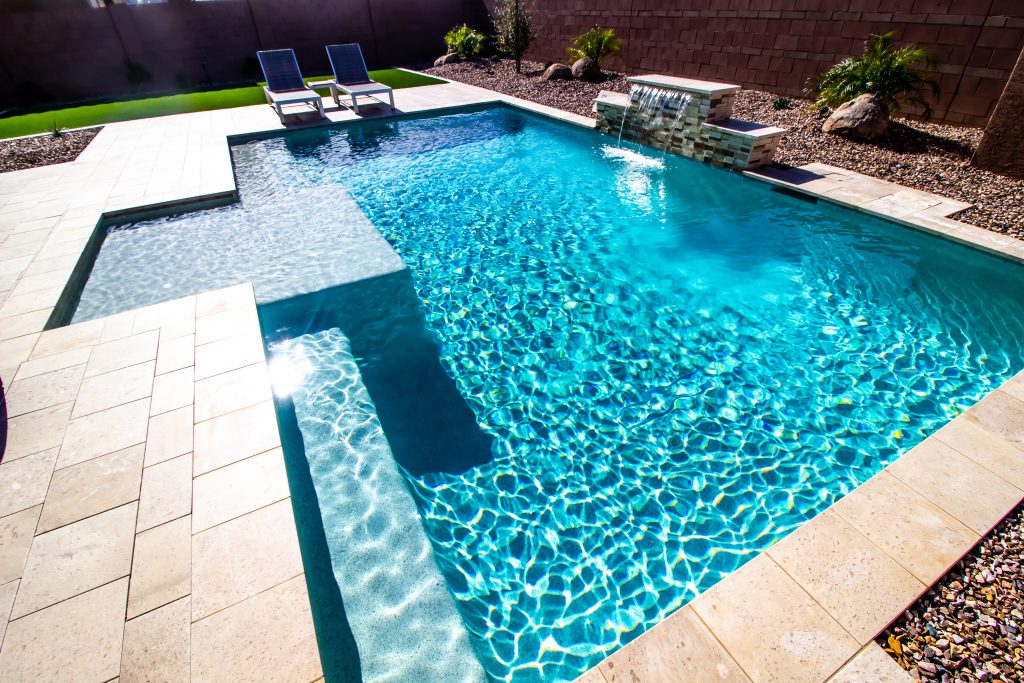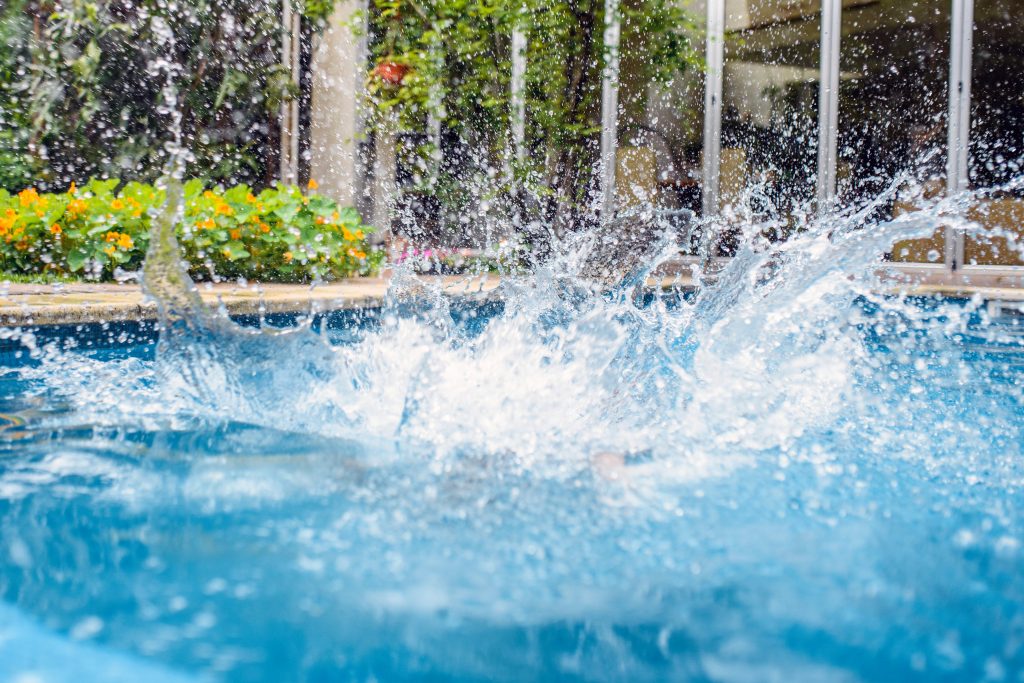Saltwater vs. Chlorine Pools: Which Is the Right Choice for Your Home?
A backyard swimming pool can make scorching Texas summers not just tolerable but enjoyable. Installing one, though, can be a big undertaking that requires careful consideration on the front end. One critical decision is how to chemically sanitize your pool, keeping it safe and clean. Let’s review the pros and cons of installing a saltwater pool vs. a chlorine pool so you can decide which best suits your needs.

Chlorine Pools
Most people opt for a traditional chlorine sanitation system where chlorine is added directly to the water. While this system effectively kills algae, germs, and bacteria, the water’s pH levels must be regularly monitored and adjusted. That means working with strong chemicals and storing them safely away from children and pets.
Improperly treated water can have a strong chemical smell and irritate the eyes, and even a well-maintained chlorine system may fade swimsuits and hair dye over time. However, it reliably gets the job done and is relatively affordable to install.

Saltwater Pools
Saltwater pool systems are less common but growing in popularity. These pools are still chlorinated, but they generate their chlorine from salt by electrolysis. Instead of adding chlorine to the water, you add pool-grade salt. Since it is only a tenth as salty as the ocean, it likely won’t make your skin feel gritty, and thanks to the lower amount of chemicals, the water should feel gentler. Its chemical stability requires fewer water changes over its lifetime, which may be a significant advantage for some who prefer less maintenance. Although pools generally don’t have a great financial return on investment, saltwater pools may be more attractive to home buyers than traditional pools because maintaining them is fairly simple and inexpensive.
The primary drawback of saltwater pools is that the initial setup (or conversion of an existing chlorine system) is expensive — much pricier than a traditional model. Salt is also corrosive, so over time, pool fixtures, finishes, surrounding stone, and components like salt cells and pumps may wear away and need to be replaced more often than in a chlorine pool.

Saltwater vs. Chlorine Pool Systems
There is no “one-size-fits-all” answer to the salt vs. chlorine question. They each have pros and cons, and which is better for you will depend on the specifics of your situation, such as your budget and the amount of time you can devote to upkeep. Starting with a chlorine system and converting to saltwater down the road can allow you to manage costs while keeping your options open. Ultimately, what matters is not which system you choose; it’s that your pool stays a safe, clean, and enjoyable part of your home.
Once you’ve installed your oasis, refer to our guide to get your pool maintenance down to a science.
© 2024 Texas Farm Bureau Insurance



